Hunting in Namibia
Here you’ll find all information regarding hunting in Namibia and about the hunting safaris offered on Onduasu in the heart of Namibia.
Overview:
- Hunting at Onduasu
- Trophies and game species at Onduasu
- Taxidermists
- Hunting regulations in Namibia
- Important travel information
- Benefits of the hunt in Namibia
- Accommodation at Onduasu
- Safari options after your hunt
Hunting at Onduasu in Central Namibia
The exceptional wildlife and the breathtaking landscapes render Namibia as one of the world’s most beautiful countries for safaris. Everywhere one can experience the wide and open space and the seemingly endless time. The country ist huge, harsh and wild with a clear blue sky ensuring that memories will never fade.
Onduasu is the ideal place to experience an exciting and successful hunting safari in the heart of Namibia. The farm covers an area of about 5.000 hectares and consists of grass savannas and African mountain landscapes, guaranteeing a diversified hunting experience.
Hunting Safaris at Onduasu
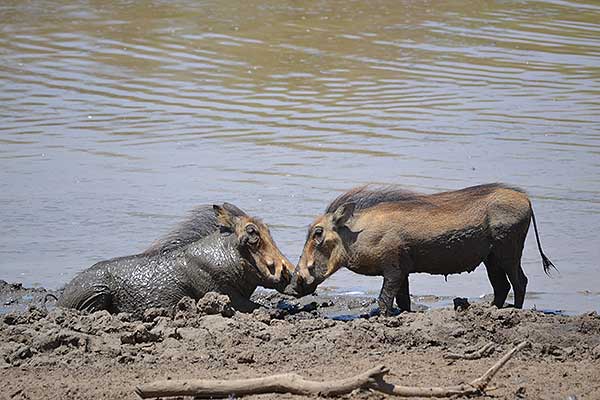
The hunting season starts on the 1st February and closes on the 30th November. Hunting is permitted in an area of approximately 30 000 ha. As the vegetation of ONDUASU consists mainly of thorn-bushes, ist is possible to get fairly close to the game. The dry rivers for example are very suitable for stalking.
With a registered hunting guide as constant companion, hunting takes place be means of stalking, drives or from a hide. Well positioned raised hides are a prerequisite for successful hunting. The owner of the farm and hunting guide, Kurt Kretzschmar, will take great care to release only well matured and strong – or old and very abnormal trophies.
The registered hunting guide is your constant companion as prescribed by the law. Locals serve as hunting assistants. They are excellent trackers and are well trained in seeing to the game and the trophies.
Trophies and game species at Onduasu
Available Games Species:
- Warthog
- Kudu
- Oryx
- Hartebeest
- Steenbok
- Eland
- Duiker
- Jackal
- Caracal
- Baboon
- Leopard
- Cheetah
Leopard and cheetah may only be hunted with an additional special hunting permit.
Furthermore, it can be arranged and organised to hunt other game on other farms within Namibia. Springbok, Blesbok, Waterbuck, Wildebeest and Zebra can be hunted on a farm close to Onduasu. This offers the opportunity to discover more of the amazing diversity of this country. Please indicate with your reservations which trophies interest you the most.
Taxidermists / Trophy services
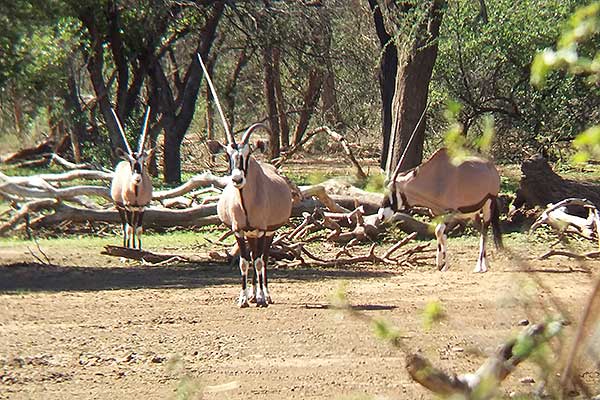
It is our pleasure to organise the preparation and the transport of your trophy with a reliable taxidermy for you. The hide and the skull will be prepared directly on the farm – animals are skinned and the hide salted. The horns are removed, the skulls cooked and bleached. Afterwards the horns, skulls and hides are prepared for the transport to the taxidermy.
The taxidermy organises the necessary certificates for the export (Veterinary authority and Ministry for Environment and Tourism) as well as the import permits for the hunter’s home country.
Hunting regulations in Namibia
Onduasu Jagd is a member of NAPHA (Namibia Professional Hunting Association), the organization for professional hunters in Namibia. The hunting safaris of Onduasu Jagd adhere to all the guidelines and laws stipulated.
Hunting Season & Hunting Duration in Namibia
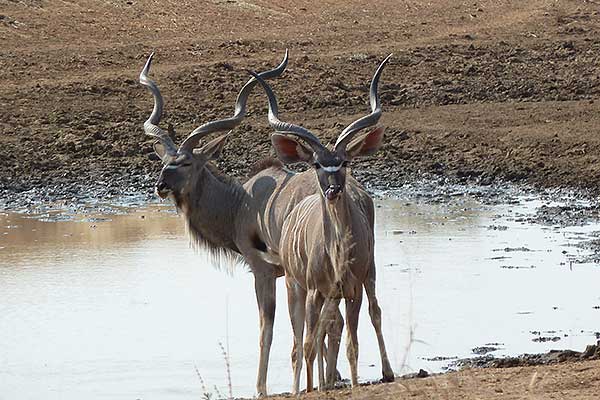
The trophy hunting season in Namibia commences on the 01 February and ends on the 30 November. During December and January hunting is not permitted.
According to the guidelines of NAPHA trophy hunting on Onduasu is allowed from half an hour before dawn until half an hour after dusk.
Trophy size and amount
The MET (Ministry for Environment & Tourism in Namibia) stipulates a minimum size for trophy animals, with the exception of abnormal or old trophy animals, which don’t have to comply with the minimum regulations of the ministry. Furthermore, the hunter is only allowed to hunt two of the same trophy animals maximum per hunting season (February to November). We take care of all regulations like hunting permits or special permits for predators like leopard or cheetah before your hunt.
Medal system
To award a hunter for an exceptional trophy NAPHA, the organisation for professional hunters in Namibia, has introduced a medal system. The intention is to promote the hunt on trophy animals, which have surpassed the age of guaranteeing a superb gene pool for future hunting generations. The medal system also generates income, which is used by NAPHA to support charitable projects and to promote hunting in Namibia.
The gold, silver and bronze system is based on the regulations of the Safari Club International (SCI). For trophies up to 5% under the standard value a bronze medal is granted. Gold is received for trophies up to 5% and above of the SCI value.
A foster medal made from old can be applied for abnormal trophies or very old animals.
We gladly apply for your medal at the Namibian Hunter's Association NAPHA.
Important travel information
Here you find important information on visa and entry regulations for Namibia when traveling with your own weapon.
Visa for Namibia
International visitors of most EU countries, USA, Canada, Australia and Great Britain receive a visum at the international airport or any other border post into Namibia free of charge.
Traveling with own weapons
We recommend bringing your own weapon of maximum 2 weapons, as you are already used to it. To be able to import your weapon you have to be in possession of a valid firearm licence. When entering the country at the Hosea Kutako International Airport you receive a temporary import licence for rifles. Please fill in the following document in advance and hand it to the authorities at the airport, who will then issue the licence.
Namibia Temporary Rifle Import Permit Application
Please take note of the following regarding the import of rifles:
- Firearms should be carried in a rifle case.
- Ammunition has to be transported in a lockable container separate from the firearm, for example together with the normal luggage.
- Handguns as well as semi-automatic and automatic weapons are illegal.
- For unconventional weapons a special permit has to be applied for.
- When flying via South Africa make sure that the weapons stay in the transit area as the import of weapons into SA takes very long. Insist that the weapon is checked in all the way to Windhoek
Benefits of the hunt in Namibia
Hunting in Namibia has an invaluable influence on the development of the local fauna. Both on private farms, as well as – and especially – in communal areas the increase in wild life numbers became visible with the promotion of hunting in Namibia and the arrival of an increasing number of hinting guests and thus hunting safaris.
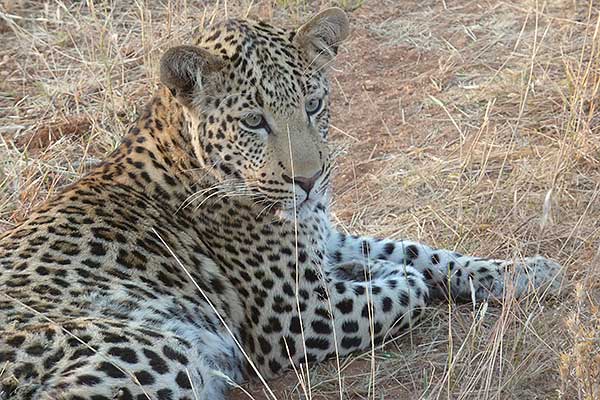
As in many other countries, the problem of the destruction of natural habitats for wildlife persisted for a long time in Namibia. On some commercial farm in the central areas of Namibia overgrazing by cattle and goats still causes the destruction of pristine African landscapes. The development in rural areas was and still is even worse. Due to the high poverty and persistent drought more and more areas were cleared to allow cultivation. Wild life had no chance to develop here for a long time. In the desert areas of the countries many animals were poached, as there was no other perspective than using the game for meat.
Improvement of Wildlife Numbers through Hunting in Namibia
Through the promotion of hunting on hunting and guest farms, but also through the development of so-called conservancies in communal areas wildlife received a measurable value. The formerly disadvantaged population became hunting assistants and professional hunters. A lot improved during the last years and wildlife population on private and communal lands could increase drastically. Poaching of wildlife has decreased with the regulation of hunting and the concept of sustainable use.
More information on the website of NAPHA
Accommodation at Onduasu
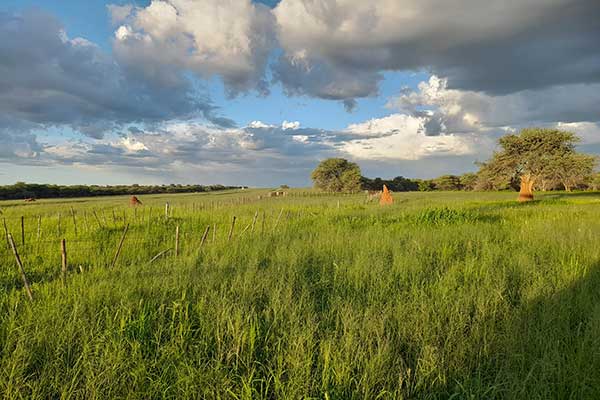
The guesthouse at ONDUASU consists of four attractively decorated double rooms (with 220 V alternating current) as well as a large bathroom witz shower (with hot and cold running water) and toilet.
A comfortable lounge with an open veranda renders itself ideally for private sunbathing or just relaxing if the need arises. A swimming pool provides an opportunity to cool off.
The daily meals are taken together with the family in the main house. Varied and balanced meals consisting of own farm products and game are enjoyed in the cosy dining area.
While sitting on the veranda of the main house, it is possible to watch the game visiting the nearby water hole during the day. A fireplace invites you to exchange the experiendes of the day, to celebrate the good hunting or just to listen to the sounds of the night while enjoying sundowners from dusk until late.
This all contributes to an unforgettable, typical Namibian hunting holiday.
Here you find the link to our accommodation page:
Safari options after your hunt at Onduasu
After your hunt on Onduasu, you can explore the countries touristic highlights on a self-drive safari. Namibia has an unbelievable high safari potential, from the oldest desert in the world with its huge red dunes over the diverse national parks, especially the Etosha National Park, to the beautiful mountain landscapes like the Erongo, Brandberg and Damaraland. With our gallery we introduce you to the touristic highlights of Namibia:


